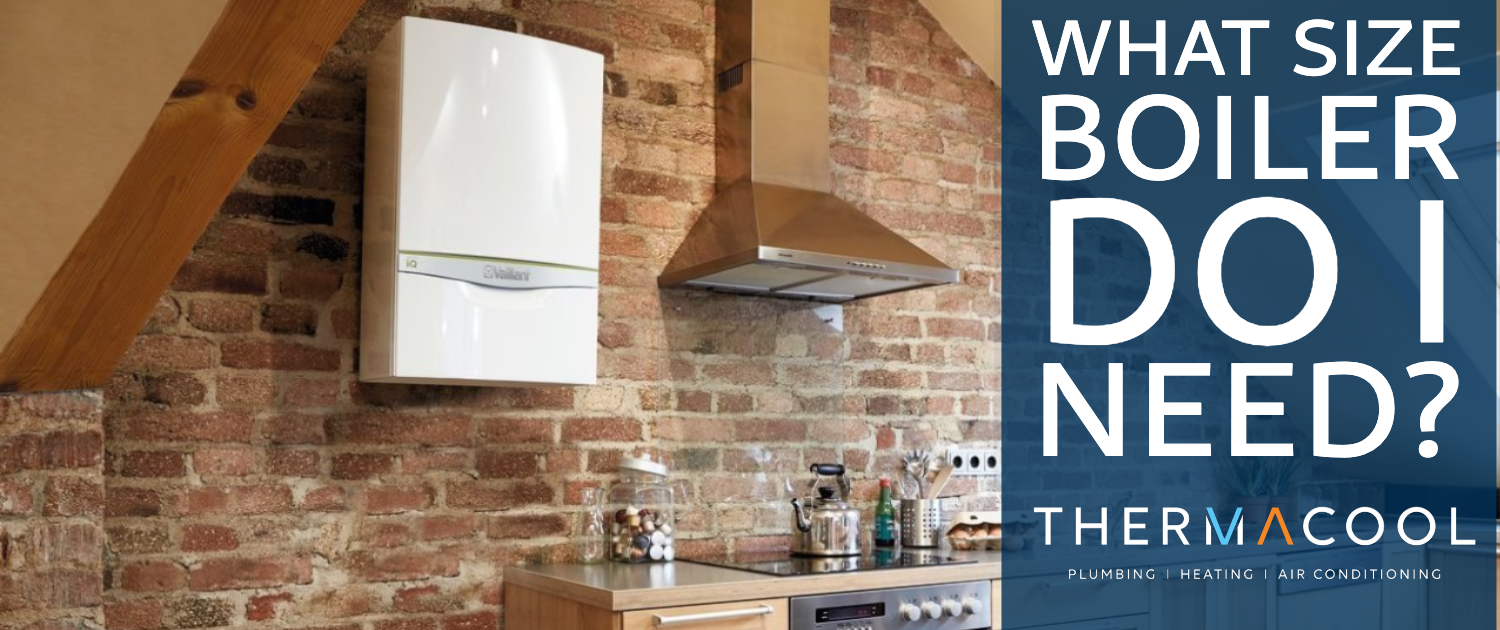What size boiler do I need?
A new boiler is a significant investment for most and choosing the most efficient for your home is a no brainer. A new high-end boiler should last 15+ years and will be responsible for your heating and hot water all day every day!
It is crucial when choosing a new boiler that it is sized correctly for the heat demand and hot water needs of your property. A correctly sized boiler will ensure it runs at its most efficient saving you money in the long run.
We will go through all the factors in making the correct choice for your property below-
The basics of choosing the right size-
What measurement is used when calculating boiler size?
Boilers used to be measured in BTU’s (British thermal units) but now have moved to Kilowatts. The higher the kilowatt, the more energy your boiler can produce and in turn, produce more heat or hot water. Inevitably the more heat and hot water you need normally means a bigger higher output boiler Is needed.
Should I choose to oversize my boiler?
The only scenario I would recommend this is when you are planning on extending your property by an extension. Oversizing used to be commonplace, but with today’s technology, this is no longer needed.
An oversized boiler will waste energy and increase its gas consumption. It also is not healthy for the boiler as it will cycle more often and put unnecessary pressure on the boiler components. Cycling is when the boilers stop’s and start’s because it cannot dissipate the heat it is producing.
In short, it’s bad for the planet and your bank balance!
Calculating the heating and hot water demand
Heating demand
Most domestic boilers in the UK are oversized, that’s a fact and calculating the heating demand for your property is fairly straight forward. These values can range from 40 to 160 watts per square meter for the property, depending on its age and how well insulated the property in question is.
For example, a standard property of 100Sqmeters @ 100watts = 10kw of heating needed. Also, it must be remembered that this figure of 10KW is only required when the outside temperature is -3C. In reality, the heating demand is a fraction of this 10KW figure for the rest of the year.
Hot water demand
The combi boiler is the most common boiler in the UK market. Combis produce hot water on demand straight from the mains water supply; they take up less space and are generally cost-efficient to run. In most cases, combis are installed in properties with only one bathroom, and this is because a combi boiler will struggle to supply sufficient hot water when there is more than one bathroom in the property. This is because the hot water is produced as it is used and not stored in a hot water tank.
Combi boilers come in different sizes relating to their hot water flow rate. The bigger the boiler, the more hot water it can produce. Boilers output of hot water is measured in litres per minute; a Large combi will be 38KW and produce around 16-liters per minute @35c rise. Combis being of a high Kilowatt for hot water production means that they are typically oversized for central heating in most cases.
If your property has more than one bathroom, then a conventional boiler or system boiler will be needed along with a hot water cylinder. This will be able to deliver the flow rates needed if more than one bathroom was to be used at once. These boilers are generally of a lower kilowatt as the hot water is stored. This means the system and conventional boilers are usually of a smaller size than combis. They are therefore more efficient when heating the home as they are not oversized.
Other factors
Water pressure
Mains water supplies should always be tested prior to selecting the size of your combi boiler. The reason being is that if you have an incoming mains supply of 13.5 Liters per minute, there is no reason to fit a boiler capable of 16 Liters per minute. There are ways to increase the pressure by replacing the main supply for a larger pipe or installing a boost pump and tank.
Think about servicing
Whichever boiler you decide is right for your property, always remember to service it annually. Making sure it is maintained will ensure it is always running at its most efficient.


